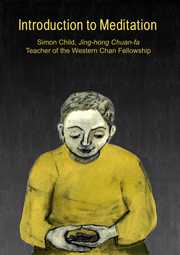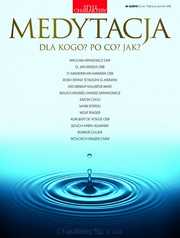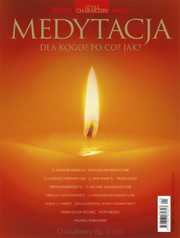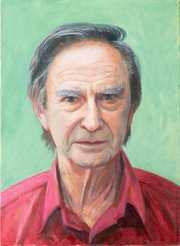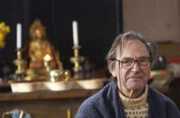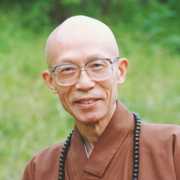Dharma Library
A large collection of articles, from past issues of New Chan Forum and more besides.
- Search by keywords, using the search box
- Or click on the buttons found below the listed articles to select by categories:
-
Introduction to Meditation
Simon Child |Read more of: Introduction to MeditationAn introduction for those new to meditation and for those who wish to develop their meditation further.
What is Meditation?
We are used to the concepts of training the body in a skill or for fitness or dexterity, and of training the mind in factual knowledge or in a mental skill such as arithmetic. Meditation is many things but it is none of these. Meditation is a training of the mind to be…
-
Unethical Zen Masters
Simon Child, Chuan-fa Jing-hong |Read more of: Unethical Zen MastersArticle commissioned by Medytacja magazine (Poland) issue 4 2013.
There have been several well-publicised scandals involving unethical behaviour by Zen masters. This is not a uniquely Zen problem, nor a uniquely Buddhist problem – there have also been similar problems involving other religions, for example with Christian priests – but I'm going to talk about it from the Zen perspective since that…
-
What is Silent Illumination?
Simon Child |Read more of: What is Silent Illumination?Article commissioned by Medytacja magazine (Poland) issue 1 2013.
Anyone who has ever tried any meditation will understand what I mean when I say that our minds are often noisy and dull. ‘Noisy’ because we experience the ‘voices’ of our thoughts filling our minds with words and images. ‘Dull’ because we see only a part of our present circumstances and environment, the part which preoccupies us,…
-
The Accidental Buddhist
Simon Child |Read more of: The Accidental BuddhistArticle commissioned by Medytacja magazine (Poland), issue 1 2013.
In his public talks and writings the Dalai Lama often expresses the view that people should stay within their own tradition. If you are someone who is exploring different traditions and practices then you may be surprised and perhaps disappointed by this advice – why shouldn’t you change tradition if that is what you decide to…
-
The Circling Birds: Openings to Insight on the Path of Chan
John Crook |Read more of: The Circling Birds: Openings to Insight on the Path of ChanIn Chan Comes West, Master Sheng Yen’s five lay Dharma heirs share their stories on the path, including how they came to the practice, their inner struggles along the path, and what receiving Dharma transmission has meant for them. It is hoped that readers will find these stories inspiring and be encouraged to make great vows in their own practice. Here is John Crook’s chapter from that book,…
-
What is the Western Chan Fellowship
John Crook |Read more of: What is the Western Chan FellowshipPast Patron - The late Venerable Chan Master Dr Sheng Yen
Founding Teacher - The late Chan Master Dr John Crook Chuan-deng Jing-di
What is Chan?
Chan means Meditation, in Chinese. It is the historical root of Japanese Zen. Both Chan and Zen are rooted in the Mahayana traditions of Compassion and Wisdom which are central to the Buddhist path.
Chan employs traditional Buddhist meditation…
-
Introducing Buddhism: A Guide for Western Beginners
John Crook |Read more of: Introducing Buddhism: A Guide for Western BeginnersWhy Begin?
Whenever you arrive as a newcomer at a meditation class in Buddhism the teacher will wonder why you have come. Maybe you are coming because a friend has suggested it; maybe you have heard a radio programme; maybe you have read something exciting about Zen. Whatever it was, the teacher will want to go deeper.
Westerners usually seek to explore meditation or…
-
Working with a Master
John Crook |Read more of: Working with a MasterWhat is it like for a lay practitioner to work with a master over a period of time? A single retreat provides an introductory experience but what if one persists through a series of such events? This would indeed be a requirement if the aim was to train in Chan. Training takes time but does it take one anywhere?
To assist those for whom this question may be relevant, I attempt to answer it…
-
Welsh Mandala
John Crook |Read more of: Welsh MandalaAkshobya
Dark light before dawn
no wind and in the silence
a fox barking on the hill;
suddenly in the candle lit room
the cold landscape unfurls
invisible rocks, burrows of badgers
trolling the turf for bulbs and insects
the starlit dome, dusk before dawn
Blue immensity.Ratnasambhava
Sunrise, far to the SSE
almost at the point of turning
a midwinter sky lined by the tracery of trees,
northern thrushes… -
Prerequisites for Chan Practice
Chan Master Sheng Yen |Read more of: Prerequisites for Chan PracticeThis article is reprinted from Chan Magazine. Fall 1998, p32-35. Based on several lectures by Shih Fu, edited by Dan Stevenson, adapted for NCF by John Crook.
The Chinese term for practising Chan is ts'an-ch'an, which means to investigate, engage, or dig into (ts'an) the heart or living enlightenment of the Chan tradition. It is often said in Chan that the door to Chan is "no door," that the…
Featured
By author
More
©Western Chan Fellowship CIO 2026. May not be quoted for commercial purposes. Anyone wishing to quote for non-commercial purposes may seek permission from the WCF Secretary.
The articles on this website have been submitted by various authors. The views expressed do not necessarily represent the views of the Western Chan Fellowship.
Permalink: https://w-c-f.org/Q358

